Indie Monthly: August 2024
Summer's end brings a bevy of indie delights

The doldrums of summer are finally over. As we wave goodbye to the savage heat of what has been a particularly ugly season, we see small developers peddling their wares off in the distance.
August was a particularly impressive month, at that. The offerings below lean heavily into the nonviolent, featuring narrative, strategy, and music-based games with a distinctly cozy feel. But we've also got a few TRPGs for anyone who really needs to feel a bow in his hands. Wherever your tastes run, there's something for you here.
And remember, videos of these games in action can be found on my YouTube channel.
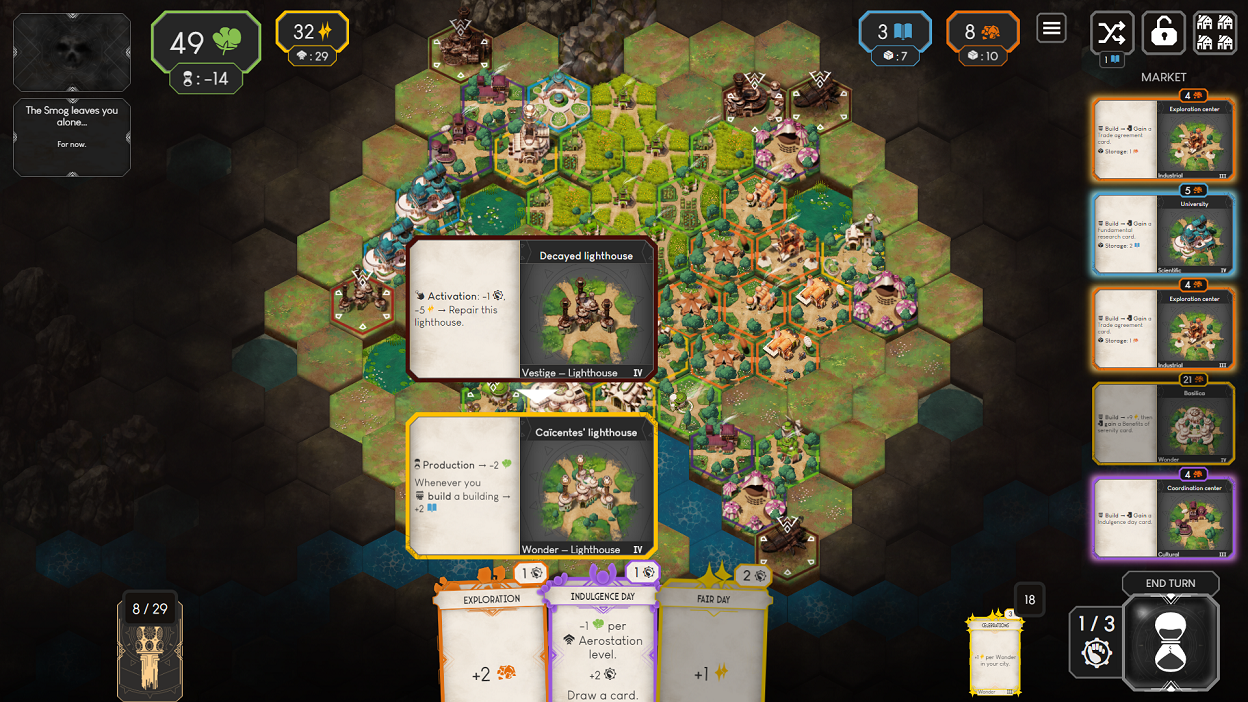
Dawnmaker
You have arrived on a dead island with a mission to restore civilization. The land of Heksiga is covered in a corrosive Smog that sometimes seems to have a malevolent intelligence. A previous civilization used arcane lighthouses known as Aerostations to keep the Smog at bay. With careful planning, you can restore the Aerostations to working order and bring life and culture back to the land.
Dawnmaker is a combat-free, board game-style strategy game. A full game consists of a series of areas, with the goal being to fully upgrade the Aerostation and repair any minor lighthouses. This is done by playing cards to generate basic resources, which can then be used to construct buildings used to gather the rare resource used by the Aerostation. However, there's also a critical resource called luminoil that's needed to keep the lighthouses lit and the Smog at bay. Luminoil demand increases with time, so the player needs to act with some haste.
This is a game focused on flexible planning. Construction space is limited, and while upgrading the Aerostation makes more land usable, it also increases luminoil consumption. Most buildings have some synergistic effects - they may generate more resources when built next to certain other buildings or have activated effects that may consume a certain resource for greater benefit. The player gains new buildings over the course of each area, though both the overall building pool and the available buildings are semi-random, so a player can't rely on the same strategy every time.
The fundamental gameplay of Dawnmaker reminds me of Roots of Yggdrasil, a game I looked at earlier this year. Of the two, Dawnmaker is definitely more accessible, with mechanics that are easier to understand and manipulate and an overall design that does a better job of capturing that cozy strategy feel. It's a great drop-in game for strategy fans who want something a little lighter.
Dawnmaker is available for PC via Steam. A copy was provided for this review.
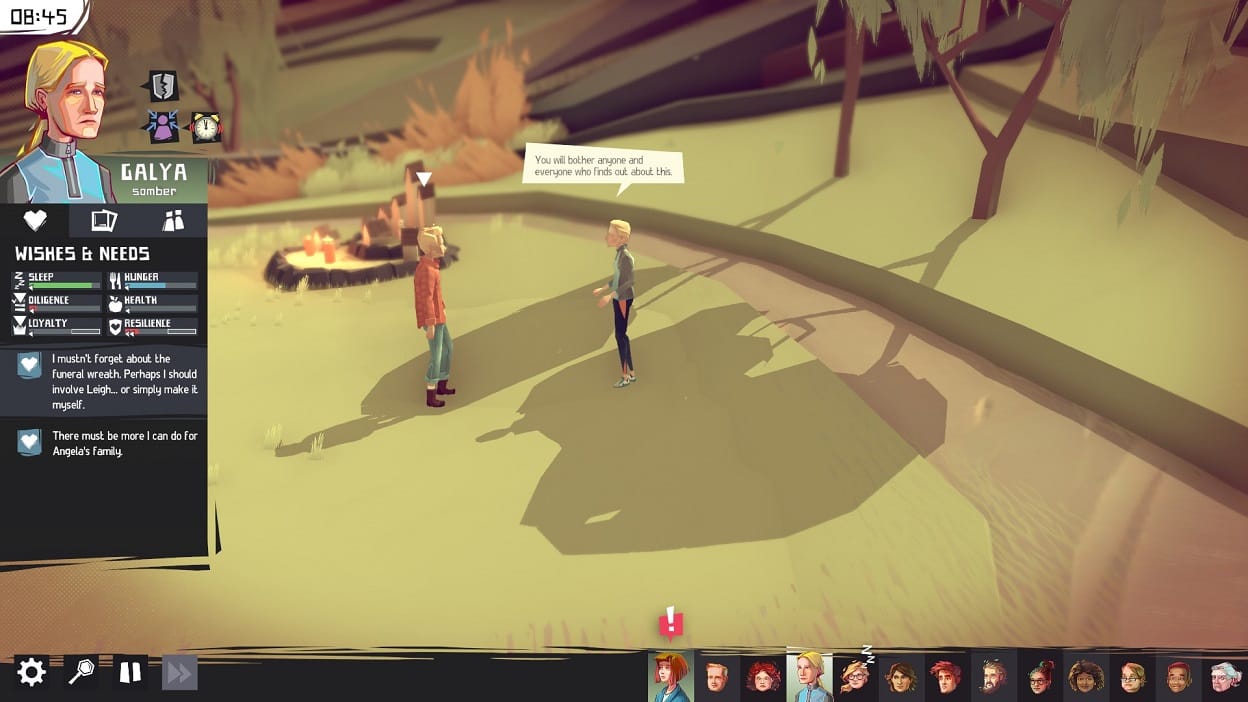
Closer the Distance
The small, dying seaside town of Yesterby has been turned upside down by the sudden death of a young woman name Angela. As a would-be peacemaker and (to some people) pest, Angela's passing has affected everyone. However, Angela's sister Conny has been changed in an unusual way: She can now hear the voice of Angela giving her guidance. It's up to the two of them to mend fences and try to pull Yesterby back from the brink.
Closer the Distance is a difficult game to describe in genre terms. It has simulation and management elements, but the focus is on narrative over what those types of games usually offer. The player, in the role of the not-quite-departed Angela, has the power to influence the actions of townspeople - just Conny at first, but later others as the narrative advances. Left alone, people will attend to their basic needs, but the player can also direct them to interact with each other and help out around the town.
Characters who meet under certain circumstances - whether naturally or with player influence - will have conversations detailing their past experiences. These discussions are the heart of the game and are the key to understanding the problems facing Yesterby. Those closest to Angela will sometimes unlock memories that reveal more about her, who is otherwise a somewhat enigmatic figure.
The narrative in Closer the Distance is about secrets, but not necessarily deep, dark, sinister secrets. These are the kind of mundane secrets that people keep from loved ones and lead to problems. Ultimately, this is a story about dealing with change and learning to be honest. It's not as epic as narrative-driven video games tend to be, but it's certainly an earnest experience and one that might resonate with anyone who's had similar life experiences.
Closer the Distance is available for PlayStation consoles, XBox Series and PC via Steam. A copy was provided for this review.
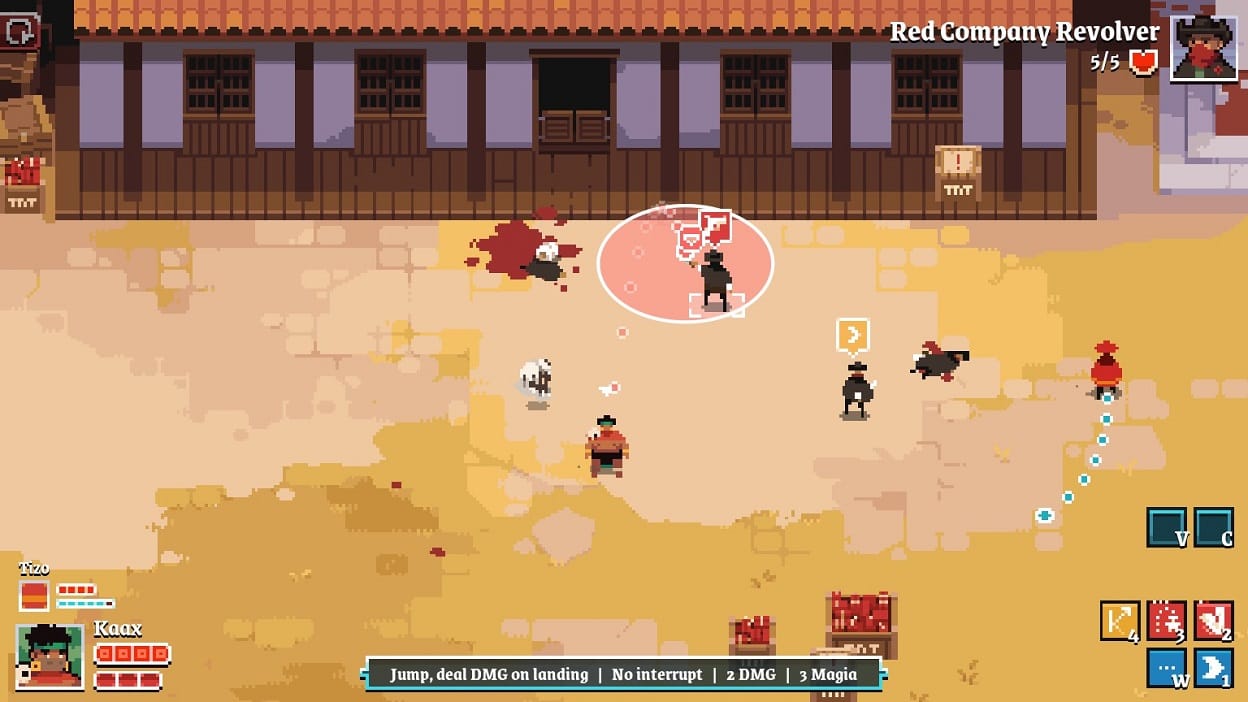
Arco
A wizened Iyo hunter seeks revenge against the mercenary band responsible for the slaughter of his tribe long ago. A young Kanek warrior seeks to prove her worth in ritual battle, only to be drawn into a conspiracy that leaves her framed for murder. Two Tuag siblings are double-crossed during a trade, leaving them stranded in the desert with nothing to live on. What start as separate stories slowly draw to a common point as all four find themselves on the trail of a nefarious villain with a grander scheme than they could imagine.
Arco is a tactical RPG with a novel combat system that's halfway between turn-based and real-time. Combat sequences are split into chunks of a few seconds each. The player plans out their moves in advance and then watches as both their actions and the enemy's actions are executed in real time. This system emphasizes foresight and planning, whether that means keeping enough distance from an enemy to dodge an attack or accounting for an opponent's movement when fighting at range.
The setting and story of Arco lean heavily into the history of Mexico and the American Southwest, with an eye toward the tensions between traditions and encroaching modernity. This carries over into the gameplay as well - decisions made during quests and conversations can have unintended, at times unpleasant consequences. This can mean gaining guilt, a component of Arco's unorthodox morality system. A character burdened by guilt may have to deal with the ghosts of his past, who appear in combat and attack even in between turns.
Ultimately, Arco is a challenging TRPG with a system that most people should be able to figure out (if not master) fairly quickly. It's a good choice for fans of the subgenre who want something a little different.
Arco is available for Nintendo Switch and for PC via Steam and EGS. A copy was provided for this review.
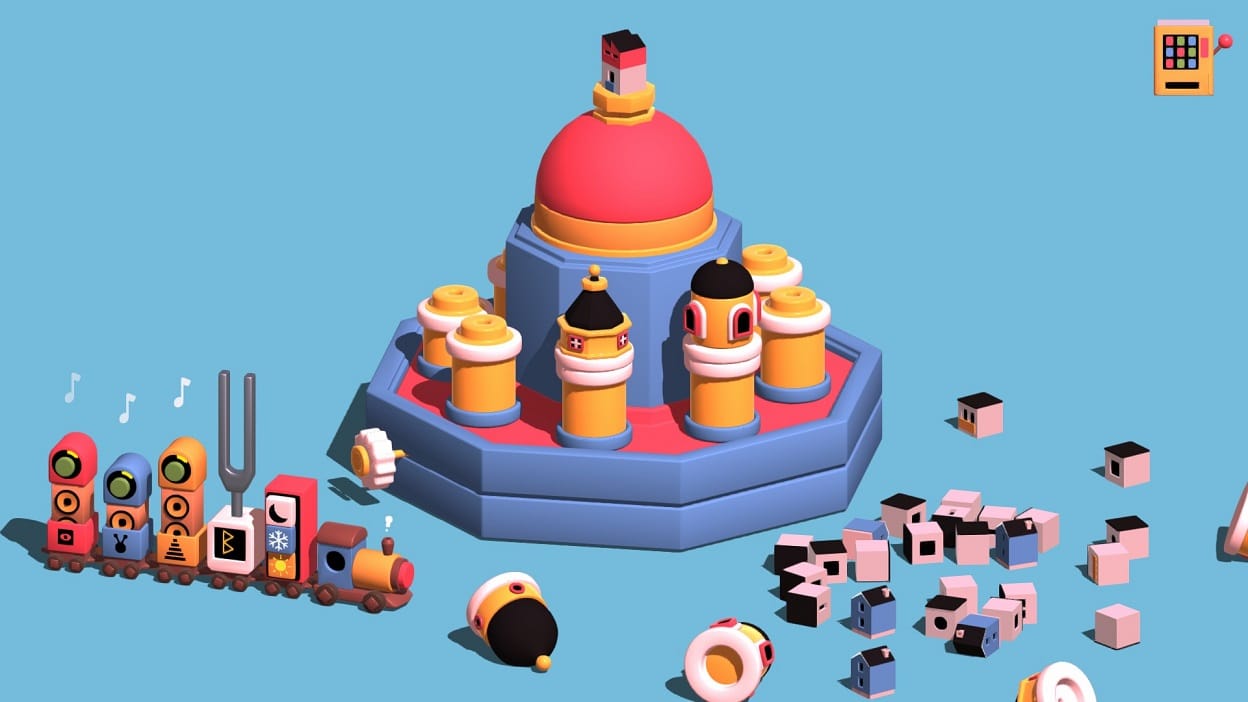
ODDADA
ODDADA is an odd experience in that it's not quite a video game and not quite a music sequencer. As with a lot of recent and upcoming music-themed titles, the task is to create a short song using elements provided by the game. Where ODDADA stands out is in its presentation.
Rather than a standard musical interface, ODDADA presents the player with a sequence of six randomly selected devices meant to resemble vintage toys. Some of these are straightforward, such as a keyboard or sampler. Others are a little bit more ingenious. One screen presents the player with a series of blocks that play a tone as a pulse passes through them, and that tone can be raised by physically lifting the block using the game's physics system. Another shows a relief map upon which the player places buildings and trees which play notes as a wave hits them.
Finishing a track - which can take anywhere from five minutes to all morning, depending on how much of a perfectionist the player is - rewards the player with tools that serve to further modify the sounds produced by the various gadgets. The player can cause the gadgets to produce a wide array of alternate sound effects, add or dampen resonance, change the overall pitch, and more. ODDADA also has tools to save and share memorable pieces of music.
ODDADA is an almost impossibly charming game that is extremely dedicated to capturing the feel of these throwback toys and gadgets. The level of detail in some of these screens is astounding and the overall process of making a loop is just satisfying, all the way to the end where you stick the finished tape into its little box. This one is worth a look even if these kinds of games aren't normally to your taste.
ODDADA is available for PC via Steam. A copy was provided for this review.
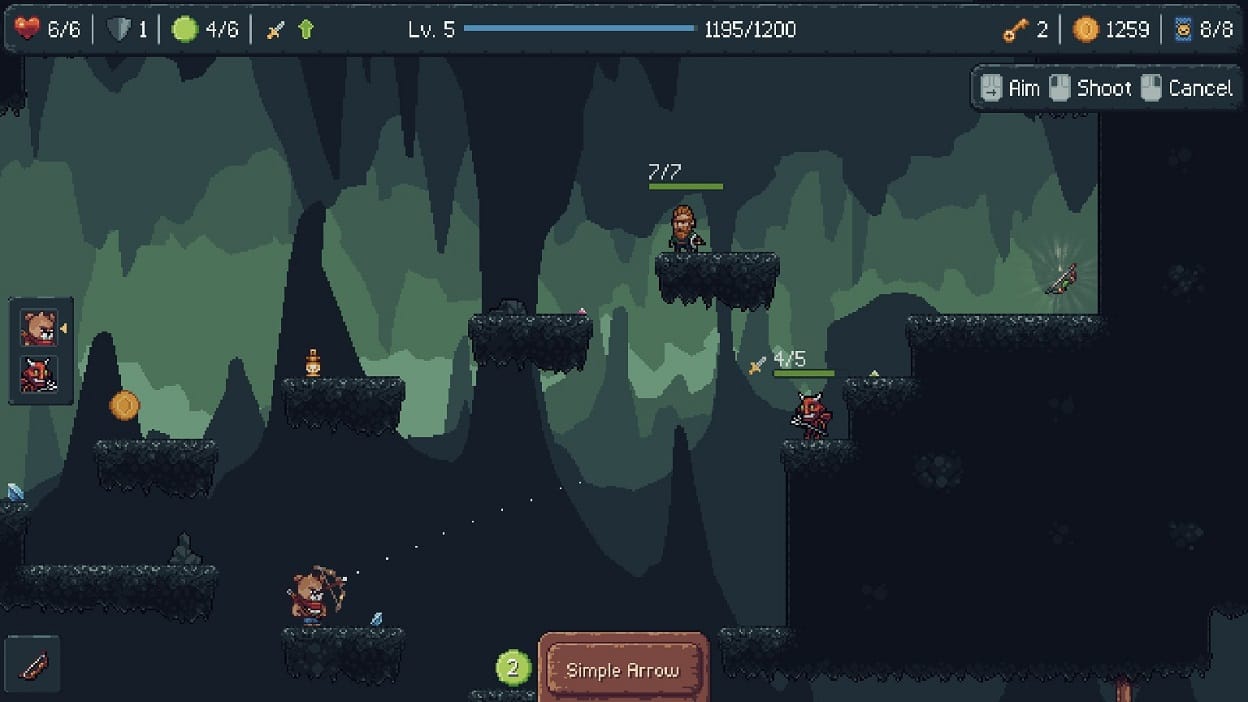
Bearnard
Bearnard is the son of Greyfurr, legendary defender of the Heart of the Forest. One day, Greyfurr abruptly disappears, leaving a series of cryptic notes prodding his son into taking over. It's up to Bearnard to overcome his own laziness and arrogance, track down his father, and become the hero he was always meant to be.
Bearnard is a platformer/RPG hybrid with some light deck-building elements. The protagonist comes with a bow which is his primary weapon as well as a tool used to solve environmental puzzles. He can also carry up to eight cards which can be used to heal, empower his arrows, set traps and decoys, and otherwise make life miserable for opponents. Each card is a one-shot item, but they are extremely common and a player would be well advised to make liberal use of them.
Combat is a tricky affair. Bearnard is not all that durable, and a direct approach to combat isn't likely to work after the first few areas. The player will need to fight a little dirty, using attacks by ambush, deploying traps at key locations, or taking advantage of hazards. Bearnard can attack and use most cards before combat technically begins, and hard fights may require the player to prepare the battlefield in advance. While it's an interesting approach, it can be frustrating, especially if one doesn't have suitable cards on hand.
There isn't a lot of technical platforming in Bearnard, but the platformer presentation does affect tactics. Both Bearnard and some of his enemies can attack indirectly by weaving shots through the terrain, which is a smart strategy because, as mentioned, Bearnard is fragile. This definitely requires some adjustments and might be the trickiest part of the mechanics, but it's reasonably intuitive and does give the game a distinctive feel.
Bearnard is available for PC via Steam. A copy was provided for this review.
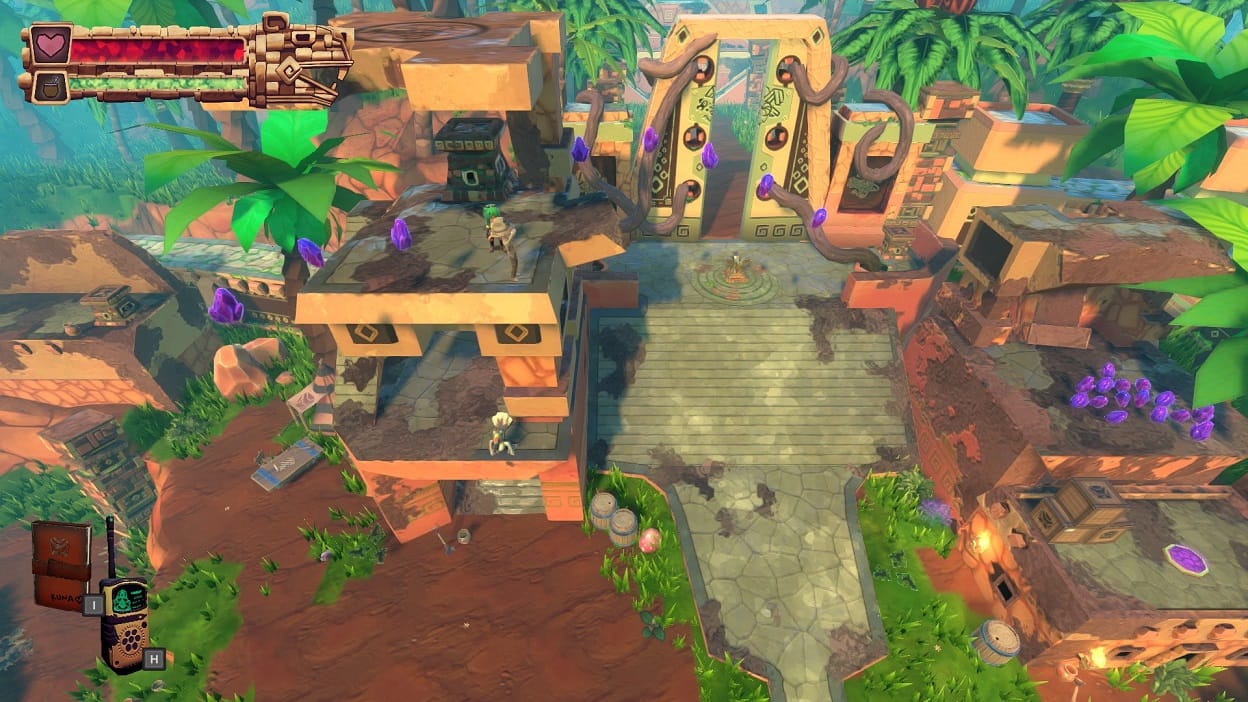
Runa & the Chaikurú Legacy
On paper, the mission to the Chaikuru ruins is a straightforward archaeological excavation. That's what The Company tells everyone, and it's why Runa has been sent there. But Runa has a second, classified objective. There are stories that the Chaikuru had discovered some powerful secret before their collapse, and Runa's true task is to unearth that secret at any cost.
Runa & the Chaikuru Legacy is a fifth-generation style 3D platformer. The game features a single, more-or-less open area where Runa's movement abilities are the main impediment to progress. Mastering new abilities allows her to reach new areas where she will hopefully find the Mystic Seeds needed to finish the game. It's a pretty straightforward collect-a-thon with a somewhat novel Mesoamerican theme.
Like most collectathon-type platformers, there is some combat but most of the challenges are based on either technical platforming or puzzles. The platforming is hampered a bit by the use of a fixed, downward-pointing camera, though Runa at least has a very visible shadow to make landings easier. The puzzles are a little more interesting and can sometimes span a large part of the ruins.
All in all, Runa & the Chaikuru Legacy is a barebones but still respectable throwback platformer. It's suitable for a wide range of ages and skill levels, so this one is a good pick for both nostalgists and their kids.
Runa & the Chaikuru Legacy is available for PC via Steam and EGS. A copy was provided for this review.
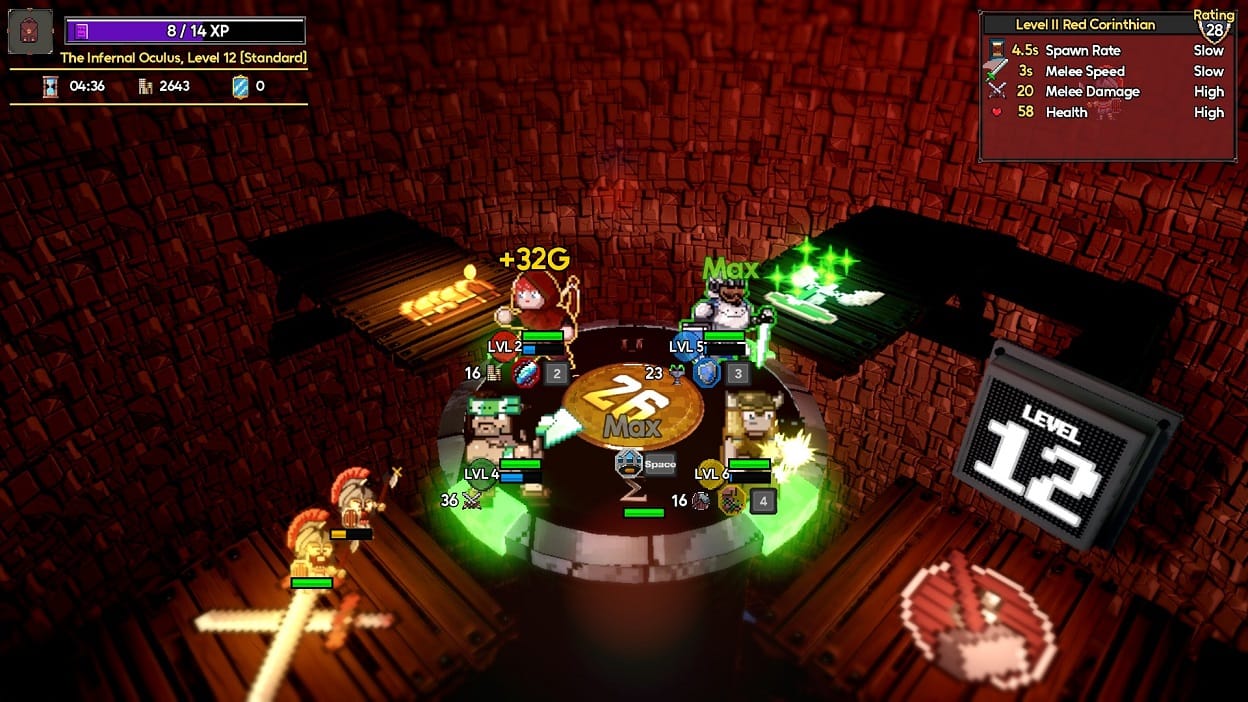
Gorgon Shield
Gorgon Shield is an action-strategy game with some roguelike elements. The goal is to take a party of up to four heroes and ascend a tower to kill Medusa. The heroes ascend on a rotating shield that they must protect from marauding monsters. Each hero protects one of four positions on the shield, but usually, only one or two will be attacked directly on any floor. Heroes in the remaining positions perform supporting roles such as ranged attacks, healing, repairing the shield, or gathering treasure, with the player spinning the shield to change who does what.
A boss appears every ten floors, but before that, the player has to clear a labyrinth. This is a substantial change in gameplay style, with the player navigating a short dungeon in a limited amount of time before the Ferryman catches up to the heroes. Depending on your perspective, this could be a nice way to mix up the gameplay or it could be an annoyance.
The difficulty in Gorgon Shield ramps up fast, and that's where upgrades come into play. After a run at the tower, the player can spend any gold earned on various upgrades including new hero types, enhancements to existing heroes, assorted passive bonuses, and runes which can be used to trigger powerful, customizable active abilities. This adds an incremental element to the game - the upgrades won't help you win on your own, but they will make the gameplay feel just a little bit more forgiving, especially in the top half of the tower.
The gameplay is certainly novel, and most players are going to figure out the basic strategies very quickly. However, there is a heavy luck element at play which can be frustrating at times. The long-term incremental growth may also be either a plus or a minus depending on your perspective. Overall, Gorgon Shield is the kind of game meant to be played in short sessions over a long period of time.
Gorgon Shield is available for PC via Steam. A copy was provided for this review.
That wraps up our look at the games that caught our attention in August, be sure to come back each month for more indie games you want to look out for!
